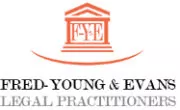Power is still a major problem in Nigeria. This is because many businesses who cannot survive its teething challenges blame power as the main cause of their business failure. Interestingly, the power problem also presents a rewarding investment opportunity particularly in the area of solar power generation. With a population of over 170 million people, diverse sectors, and active sunshine, solar power generation is the way to go.
What are the legislations regulating solar power business in Nigeria?
The Companies and Allied Matters Act, Laws of the Federation of Nigeria, 2004 ("the CAMA"), the Companies Regulations, 2012, Nigerian Electricity Regulation Commission's Regulation on Feed-in Tariff for Renewable Energy Sourced Electricity in Nigeria ("Renewable Energy Regulation"), Nigerian Electricity Regulation Commission's Regulations for the Application for Licence (Generation, Transmission, System Operations, Distribution & Trading) 2010 ("Licence Regulation") and Electric Power Sector Reform Act, 2005 ("EPSR Act").
What is the procedure for obtaining solar power generating license in Nigeria?
The Renewable Energy Regulation stipulates that applications to qualify as a Renewable Energy Generator shall be made together with the applications for license to generate electricity which shall state the technology and capacity size. SCHEDULE 1A of the Licence Regulation provides that the mandatory documents for application for generating licence are;
- Completed Application Form;
- Certificate of Incorporation and Memorandum and Articles of Association, or Deed of Partnership or Deed of Trust;
- Registered Title Deed to Site, or Sale Agreement, or Deed of Assignment/Gift, or evidence of submission of a title deed to a relevant land processing agency (as applicable);
- Tax Clearance Certificate for immediate past three (3) years;
- Ten-year Business Plan;
- Off-take Agreement or Arrangement;
- Environmental Impact Assessment (EIA) Approval Certificate, or Proof of submission and acceptance for processing of the Report on EIA to the Ministry of Environment, or Details on how effluents and discharges will be managed (if proposed capacity is less than 10MW);
- Fuel Supply Agreement, or a letter from a fuel supplier and transporter indicating the inclusion of the fuel needs of the applicant in the supply plans of the fuel supplier and transporter;
- Memorandum of Understanding with or Letter of intent from Engineering Procurement Contract (EPC) Contractor (if applicable);
- Memorandum of Understanding with or Letter of Intent from the technical partner (if applicable)
- Financing Agreements or Letter to fund the project from financial institution(s);
- Timelines for commissioning of the power plant and on the date when different capacities of the plant will come into operation.
What are the Federal Government of Nigeria's subsidies available for setting up manufacturing units or solar power project?
The Federal Government of Nigeria has set-up several incentives to attract foreign direct investment into the power sector and they include;
- Manufacture of transformers, meters, solar panels, control panels, switchgears, cables and other electrical related equipment are considered as pioneer products/industries. As a result, there is tax holiday of 5 to 7 years for investors who invest in these areas;
- Exemption from Duty Taxes on imported equipment;
- Capital & Investment Allowance which can be carried forward and used after tax holiday period;
- Any company incorporated in Nigeria is allowed to have access to land rights for the purpose of its activity in any State in the country. It is however, a requirement that industrial companies comply with regulations on use of land for industrial purposes and with environmental regulations. Land lease is usually for a term of 99 years unless the company stipulates a shorter duration;
- Power plants using gas are assessed under the Companies Income Tax Act at a reduced rate of 30%;
- 100% foreign ownership of Electricity plants;
- Repatriation of profit with a 5% withholding tax;
- Availability of a politically independent, and transparent regulatory agent for the power sector that will effectively enforce the established regulatory framework;
- Necessary foundations e.g. reliable transmission infrastructure that would create a level playing field for efficient private sector participation in the electricity supply;
- Implementing a transparent and predicated tariff adjustment mechanism that will cover cost of production and provide adequate returns on investment at all times.
What are available bank financing to new projects, their procedures, eligibility, etc.?
Bank financing may be sought from commercial banks in Nigeria or the Bank of Industry which is committed to finance industrial and manufacturing projects. Though finance from commercial banks may be readily available, the advantage of Bank of Industry ("BOI") finance over that of commercial banks is the interest rate. While commercial banks may charge an interest rate of 30-32% BOI finance is between 5-10%. We shall give a brief summary of application for finance for both commercial banks and BOI.
(a) Commercial banks
- 1st
stage
The applicant will open an account with the bank. The account should be at least 6 months (but this can be waived if the applicant's business plan is formidable. The applicant will apply for loan and state the purpose of loan, amount of loan, tenure of the loan, source of loan repayment and collateral for the loan (i.e. legal mortgage on landed property which is registered with a Certificate of Occupancy; Debenture on assets of the company; Bank Guarantee). The application must be addressed to the branch manager of the branch of bank which its account is domiciled and submit it at the bank for onward processing. - 2nd
stage
The bank receives the letter and starts processing. The bank reviews the application, writes Credit Appraisal Memorandum (CAM) which highlights the customer's capacity, character, collateral, condition and capital, generates the loan repayment schedule, prepares the offer letter which specifies the terms and conditions under which the loan will be granted. - 3rd
stage
The applicant executes the offer letter and meets the conditions precedent to drawdown. The conditions precedent to drawdown includes provision of postdated cheques that cover the entire duration of the tenor of the loan facility, presentation of a reputable guarantor, execution of guarantor's form and statement of personal net worth form by the guarantor, presentation of statement of account and execution of statement of personal net worth form by the applicant.
(b) BOI
The generic requirements for application for BOI finance are;
- The applicant must be a Nigerian company;
- The company must provide at least 20% equity for the project. Equity can be in the form of existing plant and equipment;
- Sufficient industry knowledge, skills and experience related to your business field;
- Prudent and financially disciplined, able to separate personal funds from business funds;
- Passionate, energetic and resilient in the face of challenges and unafraid of competition;
- Evidence of having attended an entrepreneurial development programme;
- An effective working succession plan;
- The company size should define you as an SME;
- The company should have been in operation for a minimum of 3 years with a good track record of sales and profit margin
- Clear, specific and verifiable loan purpose;
- Viable and realistic growth plan;
- Able to provide collateral;
- No history of loan default;
- Good book keeping and accounting;
- Skilled and dedicated workforce;
- Easy access to raw materials;
- Strong demand for products from a loyal customer base;
- All necessary licenses and permits to operate in company's line of business;
- Belong to the agricultural, manufacturing value chain or related services;
- Safe and secure location of project site and collateral assets;
- Reliable tested technology with long term maintenance agreements;
- Membership of organized private sector associations such as Nigerian Association of Small and Medium Enterprises (NASME), Manufacturers Association of Nigeria (MAN), Nigerian Association of Small Scale Industries (NASSI) etc.;
- Good corporate citizen up to date with personal and Corporate Income Taxes;
- Company's business generates sufficient cash-flow to meet loan obligations;
- Company's business line is legal and permissible;
- Company's ownership and management should be willing to make full and accurate disclosures to BOI.
It may be easier to consider the possibility of obtaining a foreign loan to finance investment in solar power business in Nigeria.
The content of this article is intended to provide a general guide to the subject matter. Specialist advice should be sought about your specific circumstances.

